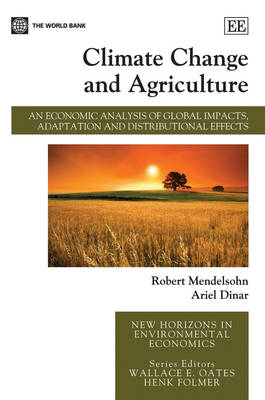New Horizons in Environmental Economics
1 total work
Agriculture and grazing are a central sector in the livelihood of many people, particularly in developing countries. This book uses the Ricardian method to examine the impact of climate change on agriculture. It also quantifies how farmers adapt to climate. The findings suggest that agriculture in developing countries is more sensitive to climate than agriculture in developed countries. Rain-fed cropland is generally more sensitive to warming than irrigated cropland and cropland is more sensitive than livestock. The adaptation to climate change results reveal that farmers make many adjustments including switching crops and livestock species, adopting irrigation, and moving between livestock and crops. The results also reveal that impacts and adaptations vary a great deal across landscapes, suggesting that adaptation policies must be location specific. Finally, the book suggests a research agenda for the future.
Economists in academia and the public sector, policy analysts and development agencies will find this broad study illuminating.
